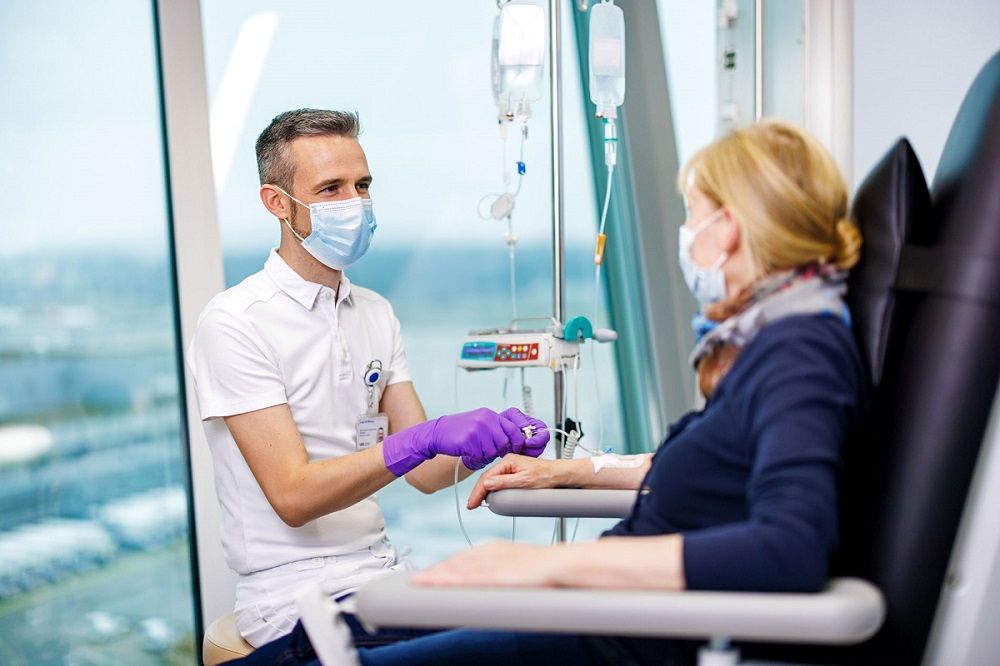Systemic or drug treatment of colorectal cancer includes chemotherapy, immunotherapy and therapy with molecularly targeted substances.
Chemotherapy
Chemotherapy is often effective for colorectal cancer and is used at various stages of the disease. After complete surgical removal of colorectal cancer, in some cases a 3-6 month chemotherapeutic follow-up treatment is carried out to reduce the risk of recurrence. In the case of rectal cancer, chemotherapy is often given before the operation, also in combination with radiotherapy. In the metastatic stage, chemotherapy plays a central role and, depending on the individual situation, serves to make metastases operable, to push back the tumor disease and to control it in the long term if possible. In the metastatic stage, chemotherapy is often combined with molecularly targeted substances and adapted as precisely as possible to the molecular profile of a tumour (personalized therapy). Even in situations of extensive metastasis, when a cure is no longer possible, personalized chemotherapy in many cases enables years of disease control. Chemotherapies typically have many side effects, but there are good ways to prevent or mitigate many side effects.

Targeted therapies
Depending on the stage of the tumor, we carry out extensive molecular diagnostics on patients with colorectal cancer before treatment begins in order to tailor the treatment as closely as possible to the tumor and patient. Personalized therapy can often increase the effectiveness of treatment and avoid unnecessary side effects. A distinction is now made between many molecular subgroups of colorectal cancer, which are increasingly being treated differently. Antibodies against surface proteins on tumor cells or in the tumor microenvironment play a central role in colorectal cancer therapy; rarer subgroups are treated with molecularly targeted drugs in tablet form. Molecular examinations also play an important role if the tumor has become resistant under treatment. Molecular examinations are now often carried out from blood as liquid biopsies.
Immunotherapy
Cancer immunotherapies activate the body’s own immune system against the cancer cells. Currently, only about 5% of all colorectal cancers respond to immunotherapy (microsatellite-unstable (MSI-H) tumors), but these often respond very well and persistently. We check whether immunotherapy is possible for all patients, as this is typically better tolerated than chemotherapy. New immunotherapies and combinations are being tested in clinical trials in which patients can participate.
Colorectal Tumor Center
At the Colorectal Tumor Center of the Comprehensive Cancer Center Zurich, we offer the entire spectrum of screening, diagnostics, treatment and aftercare for colorectal cancer at all stages. Special focus areas are state-of-the-art endoscopy, robot-assisted surgery and precision oncology.
